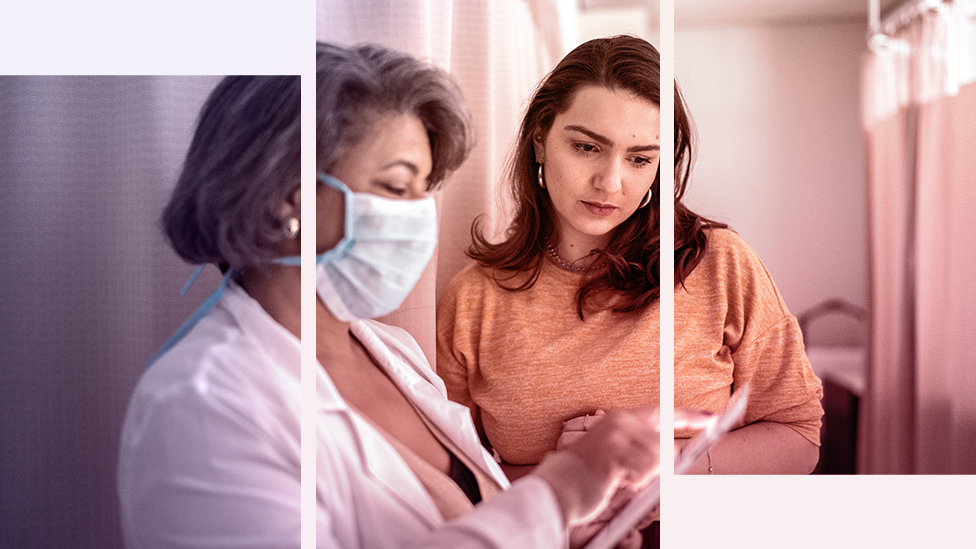Menopause: Women share symptoms and support in Belfast cafe
- Published
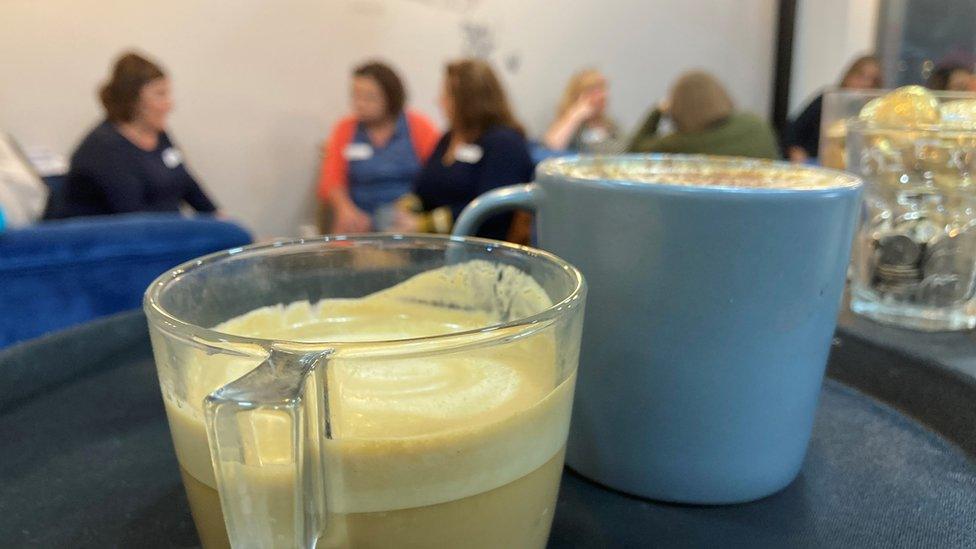
If you peered into one busy café on the Ormeau Road in Belfast, you'd see women wearing stickers with their names on them.
Not because they've forgotten their own name down to a "foggy brain" as one woman jokes.
But because they are at a menopause cafe, run by Menopause Wellbeing NI.
Two nurses, Anne McGale and Liz Wenden-Kerr tell BBC News NI there should be more support for women.
They are now running pop-up cafes to reach out to women who are confused about their symptoms, in need of peer support or friendship through this stage of their lives.

Alison McMaster - 'It's totally natural'
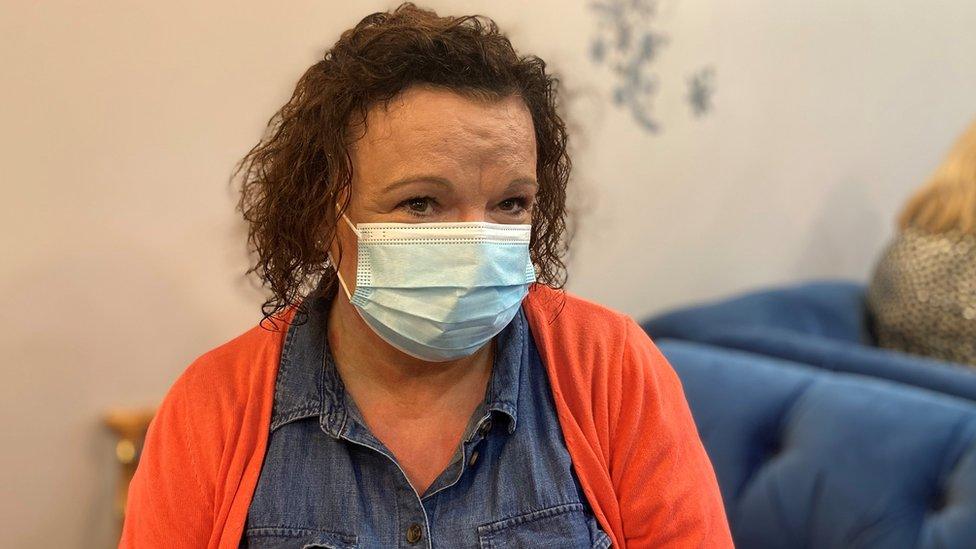
"The menopause is something I know very little about.
"It's not something that's even discussed within my group of friends, but also this is affecting half of our population, every family would be affected by this.
"The only thing I ever remember or have seen about menopause is when you see women of a certain age waving their hands in front of their faces because of a hot flush and it's laughed at and sneered at, rather than anyone trying to understand what's going on, or help with it, and that it's totally natural as well.
"It's not that we need special treatment, you just need people to understand there are reasons behind why people are behaving in the way they are.
"I probably am going through it at the minute, forgetfulness, aches and pains, thinning of hair, that I had never connected with the menopause."

Nurse Anne McGale - 'I tried to manage it'
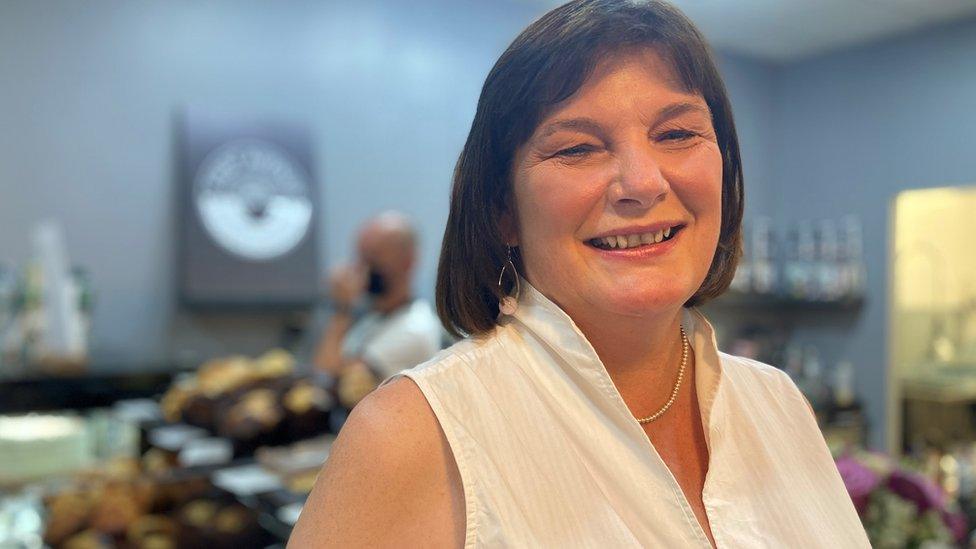
"When I went through the menopause at 51, I thought I knew what to expect and that I was just going to move through it.
"But I suffered very severe symptoms, and 25% of women will suffer severe symptoms.
"I suffered anxiety and lost two and a half stone.
"I tried to manage it; I knew all the things I should be doing, but none of them seemed to work for me.
"It comes at a time in your life when so much is going on, women are known to be multi-taskers and you, maybe, have elderly parents needing extra care, you might have teenage children, or you might have children leaving home to go to university which can give you that empty nest syndrome.
"You're at the top of your game at work and, unfortunately, for some women they may not go for promotion, they might change their jobs. They've trained, they've built up to this time of their life and, when they need a little bit of understanding, some women will leave their jobs.
"They're maybe wearing uniforms that are crippling them, or they might be suffering anxiety or a loss of confidence and they're supposed to chair a meeting. "

Fionnula Torney - 'You are very much working on your own'
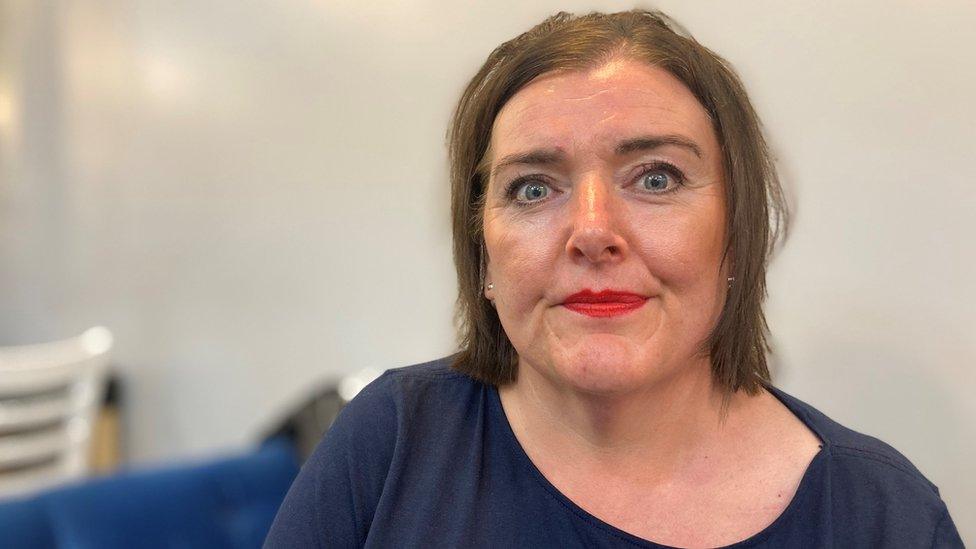
"It's hard to know exactly - is it menopause or is it not?
"That's why I'm here tonight, there might be advice or tips that could make things easier.
"I experience chronic fatigue or foggy brain.
"I work full-time, sometimes you know you should know the words, or do something much quicker.
"It can be very frustrating, there's no question about that.
"I think years ago - and even today in society - it's not seen as proper symptoms.
"My workplace is recognising the menopause, and the variation of symptoms, from flushes to foggy brain.
"Because my mother died young, I don't have that history to ask about.
"You are very much working on your own. "

Nurse Liz Wenden-Kerr - 'Pressures these days are totally different'
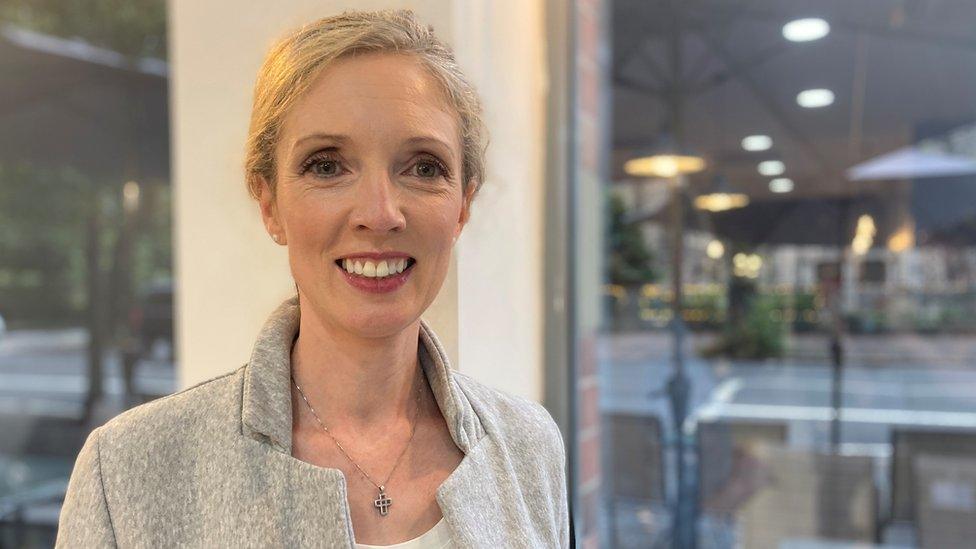
"Half the population will go through this, there's no two-ways about this.
"There's no information out there, our mother's generation say we just got on with it.
"Pressures these days are totally different."
- Published3 July 2021

- Published7 November 2024
